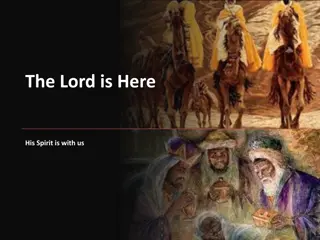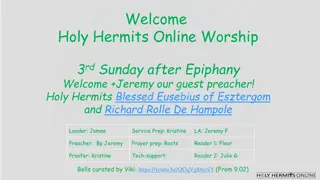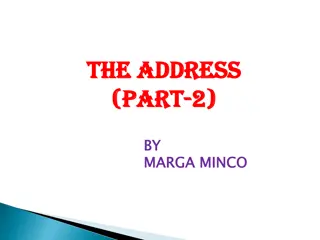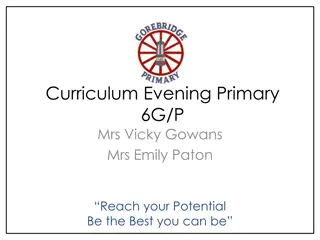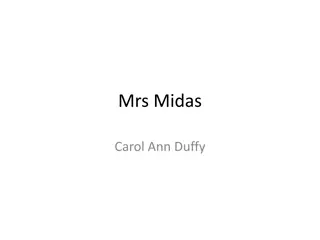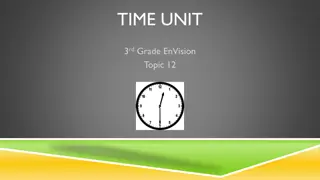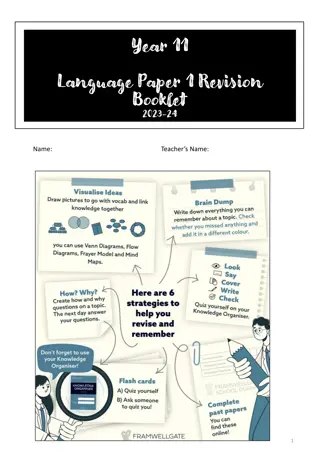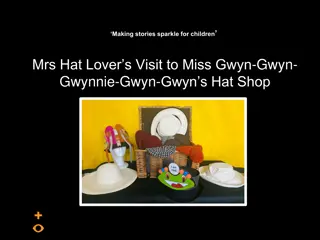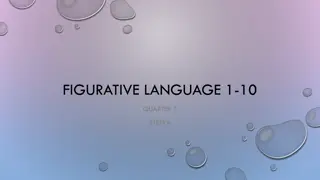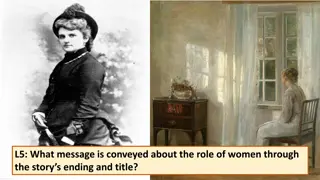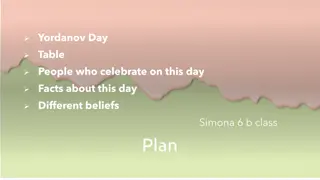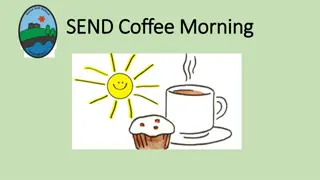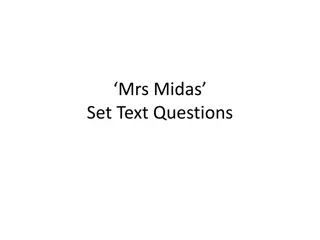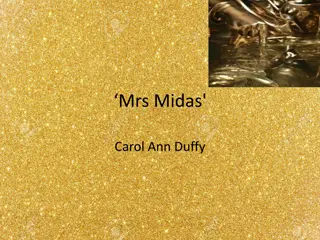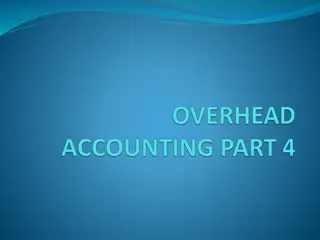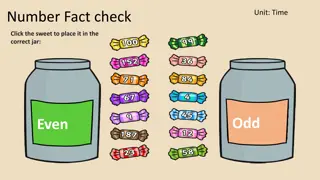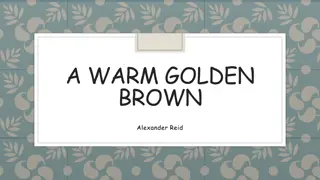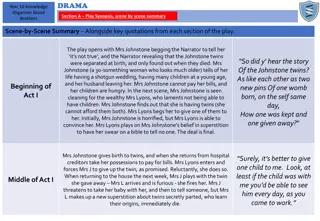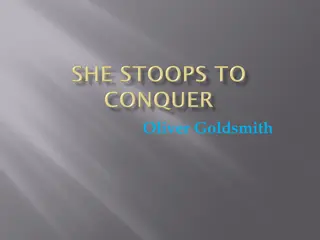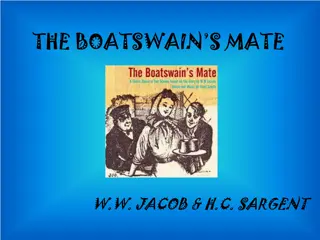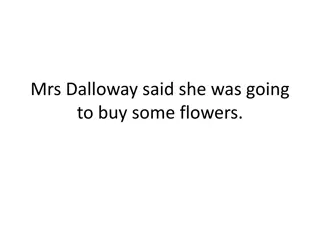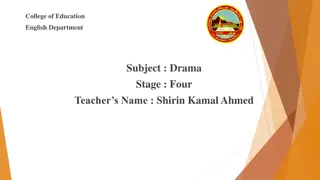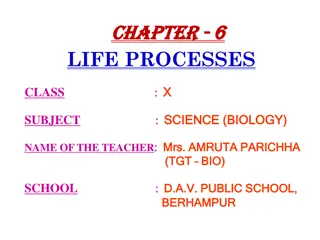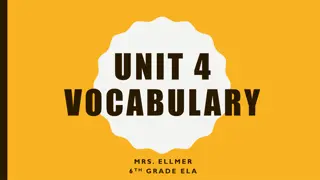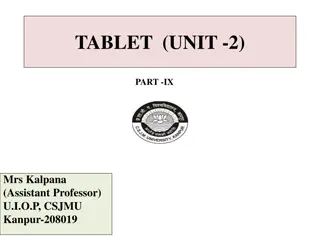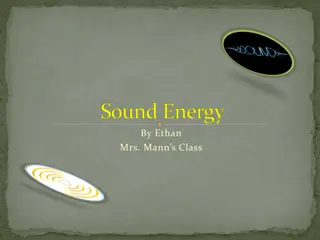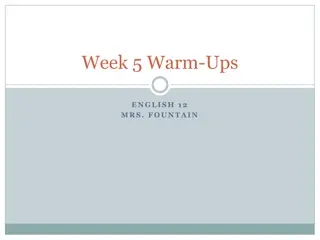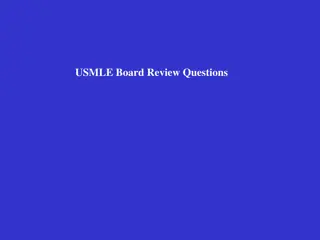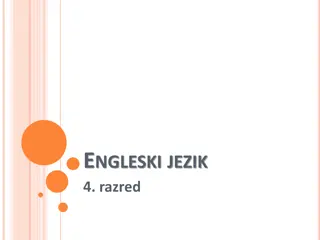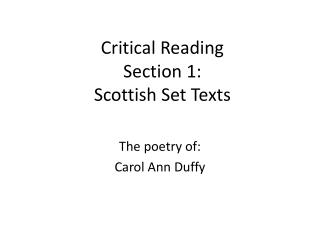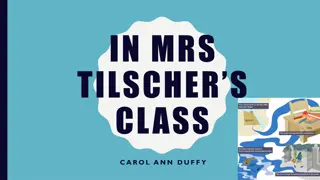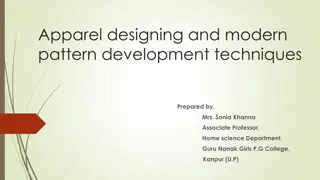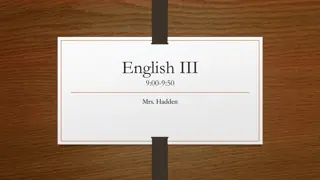Understanding Mrs. Mallard's Epiphany in "The Story of an Hour
Mrs. Mallard experiences a sudden epiphany upon learning of her husband's death - the realization of her newfound freedom. She emotionally responds by feeling a mix of shock, relief, and a sense of liberation. The story explores the complex emotions that arise as she navigates the implications of this newfound freedom.
Download Presentation

Please find below an Image/Link to download the presentation.
The content on the website is provided AS IS for your information and personal use only. It may not be sold, licensed, or shared on other websites without obtaining consent from the author. Download presentation by click this link. If you encounter any issues during the download, it is possible that the publisher has removed the file from their server.
E N D
Presentation Transcript
L4: What is Mrs Mallards epiphany? How does she emotionally respond to this epiphany?
Recap questions Recap questions 1. What signs exist in the story to present the onset of technology? 2. Why was the Gasconade Bridge disaster a significant event in Kate Chopin s life? 3. Summarise what life was like for women during the Victorian era. 4. Identify two phrases from The Story of an Hour that help to present marriage from a woman s perspective during the Victorian era. 5. What parallels exist between Louise Mallard and Eliza O Flaherty? Do it now
Situational irony when something entirely different happens form what the reader may be expecting. Epiphany (noun) a moment of sudden insight or understanding New knowledge Personification giving inanimate objects human qualities Selfhood (noun) the quality that constitutes one s individuality; the state of having an individual identity. Self-assertion (noun) is the confidence that you have in speaking firmly about your opinions and demanding the rights that you believe you should have.
Pathetic fallacy Pathetic fallacy a literary device that attributes human a literary device that attributes human qualities and emotions to inanimate objects of nature. qualities and emotions to inanimate objects of nature. Pen to paper
Situational irony Situational irony when something entirely different happens from what the reader may be expecting. She could see in the open square before her house the tops of trees that were all acquiver with the new spring life. The delicious breath of rain was in the air. There were patches of blue sky showing here and there through the clouds that had met and piled one above the other in the west facing her window. The notes of a distant song which some one was singing reached her faintly, and countless sparrows were twittering in the eaves. New knowledge Why is this an example of situational irony?
Louise Mallard experiences an epiphany when she realizes that, as a result of her husband s death, she is free. New knowledge The idea of freedom is personified. What we are going to explore is how Louise Mallard responds to the idea of freedom and then the very real prospect of being free.
She sat with her head thrown back upon the cushion of the chair, quite motionless, except when a sob came up into her throat and shook her, as a child who has cried itself to sleep continues to sob in its dreams. What is the emotion being felt by Louise Mallard? A B C D But now there was a dull stare in her eyes, whose gaze was fixed away off yonder on one of those patches of blue sky. It was not a glance of reflection, but rather indicated a suspension of intelligent thought. There was something coming to her and she was waiting for it, fearfully. What was it? She did not know; it was too subtle and elusive to name. But she felt it, creeping out of the sky, reaching toward her through the sounds, the scents, the color that filled the air. Now her bosom rose and fell tumultuously. She was beginning to recognize this thing that was approaching to posses her, and she was striving to beat it back with her will as powerless as her two white slender hands out have been. When she abandoned herself a little whispered word escaped her slightly parted lips. She said it over and over under her breath: free, free, free! The vacant stare and the look of terror that had followed it went from her eyes. They stayed keen and bright. Her pulses beat fast, and the coursing blood warmed and relaxed every inch of her body. Pen to paper She did not stop to ask if it were or were not a monstrous joy that held her. A clear and exalted perception enabled her to dismiss the suggestion as trivial. She knew that she would weep again when she saw the kind, tender hands folded in death; the face that had never looked save with love upon her, fixed and gray and dead. But she saw beyond that bitter moment a long procession of years to come that would belong to her absolutely. And she opened and spread her arms out to them in welcome. How has Chopin used literary devices to convey this emotion? E There would be no one to live for during those coming years; she would live for herself. There would be no powerful will bending hers in that blind persistence with which men and women believe they have a right to impose a private will upon a fellow-creature. A kind intention or a cruel intention made the act seem no less than a crime as looked upon it in that brief moment of illumination. F And yet she had loved him sometimes. Often she had not. What did it matter! What could love, the unsolved mystery, count for in the face of this possession of self-assertion which she suddenly recognized as the strongest impulse of her being! Free! Body and soul free! she kept whispering. G Go away. I am not making myself ill. No; she was drinking in a very elixir of life through that open window. Her fancy was running riot along those days ahead of her. Spring days, and summer days, and all sorts of days that would be her own. She breathed a quick prayer that life might be long. It was only yesterday she had thought with a shudder that life might be long. H She arose at length and opened the door to her sister s importunities. There was a feverish triumph in her eyes, and she carried herself unwittingly like a goddess of Victory. I
Selfhood (noun) the quality that constitutes one s individuality; the state of having an individual identity. Self-assertion (noun) is the confidence that you have in speaking firmly about your opinions and demanding the rights that you believe you should have. Reflection How does Louise Mallard begin to get a sense of her individual identity after being told about the death of her husband? How does Louise Mallard s confidence grow as the epiphany takes hold?


